Post-lockdown, many of us are focusing on health, trying to improve our fitness after the sedentary lifestyle of the previous months. Smart scales are a great tool for improving fitness as you can track positive changes in your health in areas other than weight. Been lifting weights? You could see your muscle mass increase. Been running? You could see your health health improve.
The key benefit of smart scales over standard digital scales is the quality of the data you’ll get. You’ll be able to monitor changes to your weight and body composition and track your progress on your smartphone app. Seeing your progress in digits and graphs helps you to see the results of your healthy choices from weigh-in to weigh-in.
For more information about smart scales, have a look at our guide below the round-up. And if you want to get a compatible fitness tracker, check out our recommendations for the best fitness trackers available.
Withings Body Cardio – Best Overall
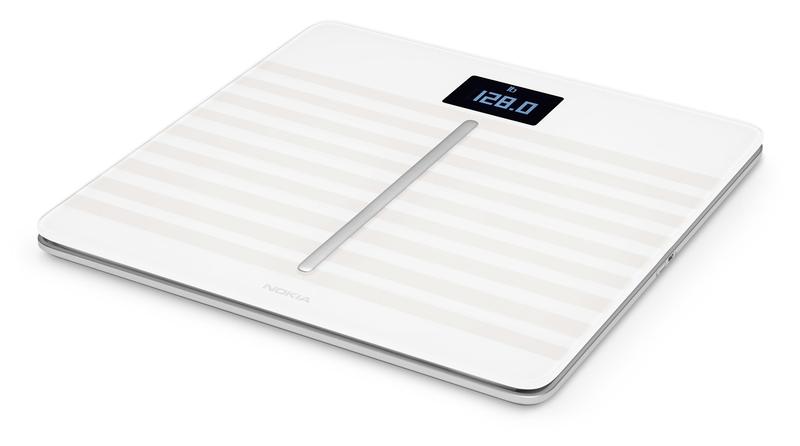
- Pros
- Glass design
- Bright display
- Full range of metrics
- Cons
Body Cardio is from health system developer Withings, though it’s also sometimes sold under the Nokia brand, which previously owned Withings. It’s the flagship model of a range that starts with the Body model that measures weight and BMI. Body+ adds body fat %, water %, muscle and bone mass. Body Cardio adds standing heart rate too.
The Withings Body Cardio does pretty much everything a smart scale can. It syncs with Withings’ range of activity trackers for all-round fitness monitoring.
The Body Cardio is our favourite smart scale for the sheer number of stats and handy info like how much weight you’ve lost or gained since your last weigh-in. It’s pricier than the others but offers just about everything you might possibly need. Our only complaint is the squiggly graphs on the mobile app.
Now, it also offers a vascular age metric, which could help you monitor your heart health.
Read our full Withings Body Cardio review
QardioBase 2 – Dedicated pregnancy mode
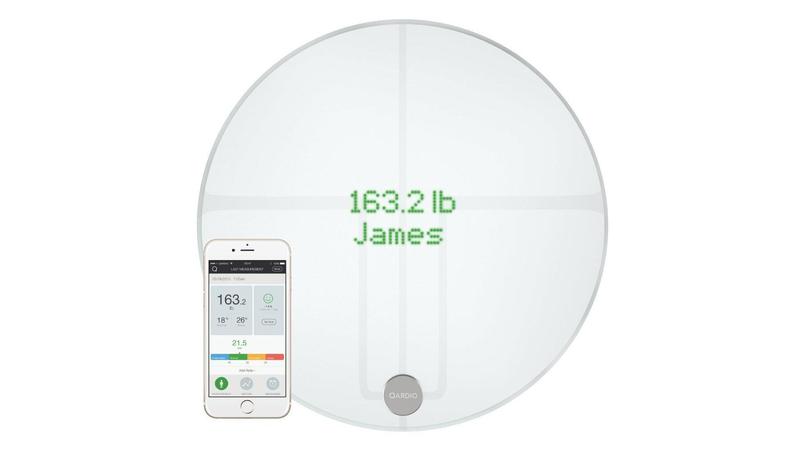
- Pros
- Stylish
- USB charging
- Pregnancy mode
- Cons
The QardioBase 2 is as smart as it is stylish, offering a good range of body composition measurements, along with handy unique features like haptic feedback or the emoji display. Our only minor gripe is that the app doesn’t make the most of all the data it gathers, but it does do more than enough for most.
It measures weight, BMI, body fat %, and muscle, bone and water mass.
The price is the only sticking point. The QardioBase 2 sits at a premium price point, and while it offers enough features to justify that price, it’s worth remembering that you can get almost as much for a whole lot less from other manufacturers.
Read our full QardioBase 2 review
FitTrack Dara – Best value
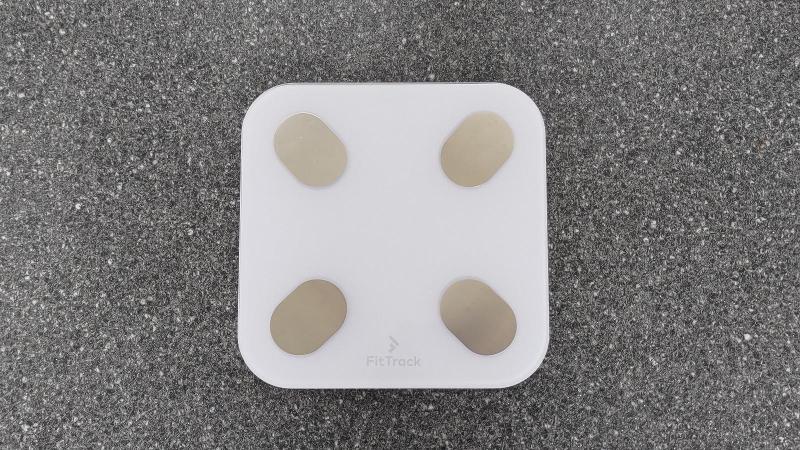
- Pros
- 17 metrics
- FDA approved
- 2 colour options
- Cons
- AAA battery powered
- Most metrics only display in app
You get a lot for your money with the FitTrack Dara. It’s an accurate scale that’s FDA approved and offers a whopping 17 body composition measurements. However, the scale itself only displays weight, so you’ll have to turn to the app to read the rest of your metrics.
If you’re based in the UK and want to use the BMI measurement, you should note that it’s not quite in line with NHS recommendations.
The scale itself is nicely designed and comes in two translucent glass colours: black and white. Bear in mind that it’s AAA battery powered, so you can’t plug it in to charge.
Read our full FitTrack Dara Smart Body BMI Scale review
Eufy BodySense Smart Scale – Best budget buy
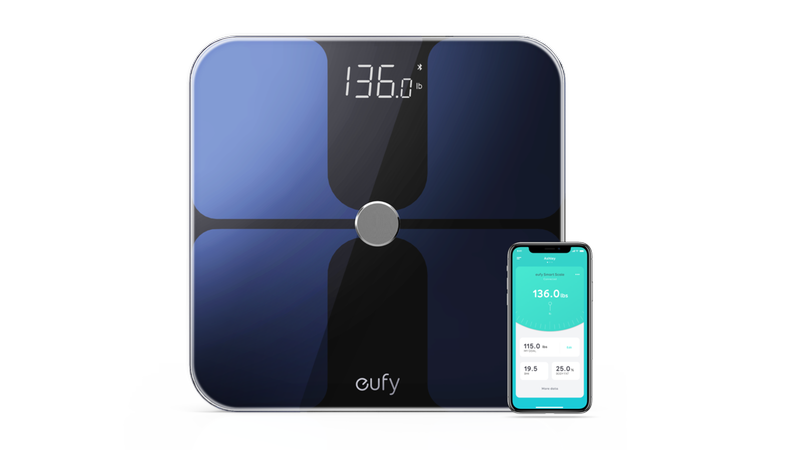
- Pros
- Price
- 12 metrics
- Easy to read screen
- Cons
- No haptics
- Battery powered
- No Wi-Fi
It’s easy to recommend the Eufy BodySense Smart Scale at this price. If you’re looking for an affordable alternative to the top-tier scales from the likes of Fitbit and Withings, this is a great option.
It offers 12 measurements including BMI, body fat percentage, muscle mass and more, and can sync with the Apple Health and Google Fit apps. These non-weight metrics have to be viewed in the Eufy app.
Up to 20 users can pair with the same set of scales, each able to set their own goals and track their own history and progression.
It misses out on some more advanced features such as haptic feedback, automatic user detection and the ability to see more than just your weight on the scales itself, but it offers a huge amount more than an ordinary set of digital scales and will be enough for most users.
Read our full Eufy BodySense Smart Scale review
Fitbit Aria 2 – Works with Fitbit activity trackers
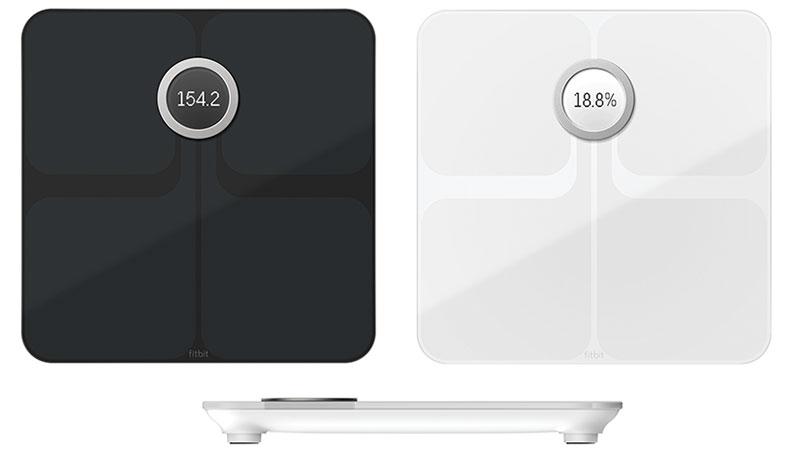
- Pros
- Multiple user icons
- Easy to read display
- Accurate
- Cons
- Battery powered
- Much pricier than the Air
The Fitbit Aria 2 scale works seamlessly with Fitbit’s dashboard and mobile apps, plus all its activity trackers, such as the Aria, Charge 2 and Ionic. You could use it without the trackers but together they make a great fitness or weight-loss team.
Aria 2 shows fewer stats than the more expensive Nokia Body Cardio, but everything you need to know at weigh-in. It measures weight, body fat percentage and BMI. It syncs this data wirelessly and automatically to your Fitbit account.
The cheaper Fitbit Aria Air lacks the body fat % measurement, so if this doesn’t interest you, you can save money by buying the less-expensive Fitbit scale.
If weight loss is one of your fitness goals the Aria 2 is a great tool to combine with your Fitbit activity tracker.
Read our full Fitbit Aria 2 review
MyKronoz MyScale – Full colour LED display
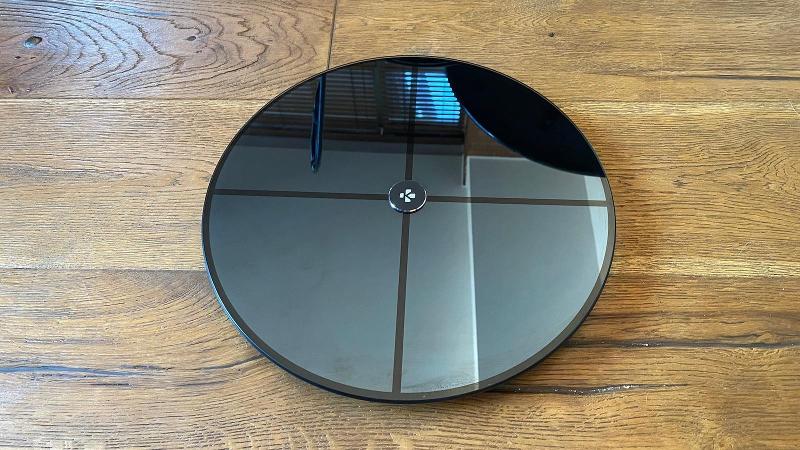
- Pros
- Google Fit & Apple Health
- USB charging
- Colour LED display
- Cons
- Multiple user issues
- Expensive
- Scale can tilt
There’s a lot to like about this Swiss-designed smart scale, but there are also issues that make it hard to recommend to everyone. One of these is the design of the scale itself. If the user doesn’t stand right in the middle, the scale can rock back, which is a bit alarming and could be dangerous.
Still, the hardware is much more stylish than your average scale, with a mirrored finish and full colour LED display. It will measure seven different metrics, including weight, BMI, muscle mass, bone mass and heart rate – all of which will be shown on the scale itself. The measurements were consistent and seemed accurate.
MyScale is compatible with Google Fit and Apple Health. The app makes it simple to track your progress from weigh-in to weigh-in and the key areas are well laid out and easy to read, although troubleshooting information is hidden away.
There’s also a bit of a learning curve to get it set up and we had some connectivity issues during testing.
Read our full MyKronoz MyScale review
Eufy Smart Scale P1 – Body age and protein measurements
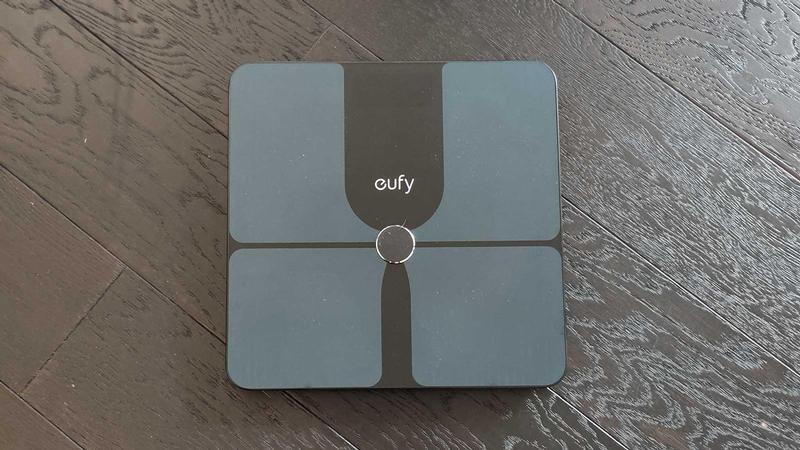
- Pros
- Good for multiple users
- Easy to use
- Google Fit & Apple Health
- Cons
- No Wi-Fi
- Battery powered
- No carpet support
If you want a simple smart scale that will track the core metrics in an easy-to-use app, can cover your whole family, and will sync up to the Google or Apple apps, there’s really no reason to spend more than this.
On the other hand, there’s also little reason to opt for the P1 over Eufy’s own cheaper models like the BodySense, which will let you save a bit of money and only miss out on measurements that you don’t really need – the body age and protein measurements here are nice-to-haves, but don’t offer any deep insight into your health or weight.
This scale measures weight, body fat %, BMI, lean mass, bone, muscle and water mass, BMR and visceral fat. There’s no Wi-Fi, no recharging, and no carpet support – but these are really the sort of premium touches that most people won’t be worried about.
Read our full Eufy Smart Scale P1 review
Fitbit Aria Air – Basic scales with Fitbit integration
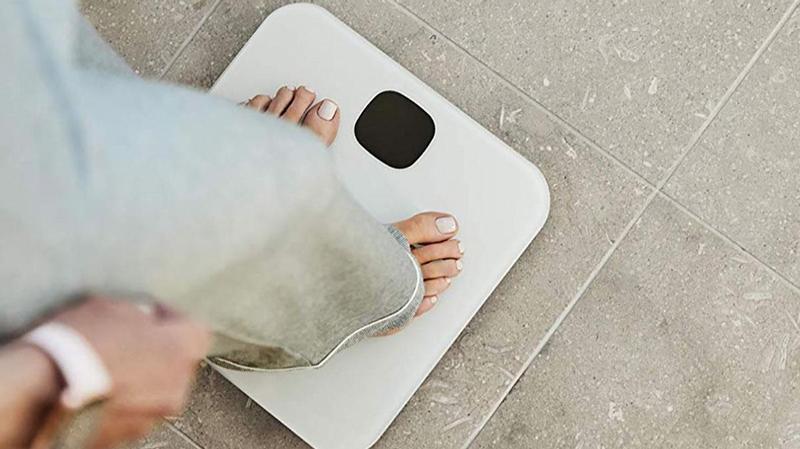
- Pros
- Bluetooth
- Affordable
- Simple to use
- Cons
- No Wi-Fi
- Only gives weight and BMI
At less than half the price of the slightly abler Fitbit Aria 2, the Aria Air expertly ticks the box that says “basic set of scales that wirelessly syncs with the Fitbit app”.
It’s a decent and affordable scale, and is easy to set up. Once you’ve done that, you just need to step on to measure your weight and monitor your progress in the Fitbit app – although, as the connection is via Bluetooth, you’ll need your phone with you when you weigh yourself (with the Fitbit app open).
Read our full Fitbit Aria Air review
Hamswan Bluetooth Smart Scale – Budget-friendly but not impartial
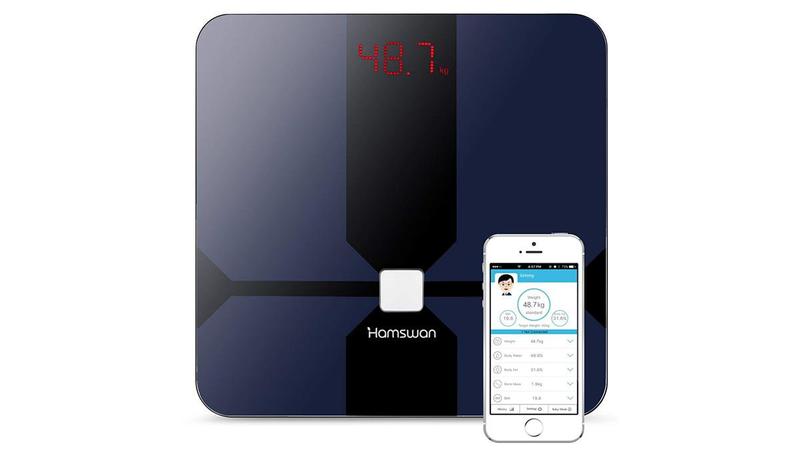
- Pros
- Cons
- Off-putting descriptions
- Questionable accuracy
While it is certainly much cheaper than most digital smart scales and offers a wide range of body measurements, we find it difficult to recommend a scale with an app that describes a person 1% above healthy as “chubby”.
For that reason, we’d keep this away from children and anyone at risk of unhealthy body-perception issues.
If you’re willing to accept this, the Hamswan Bluetooth Smart Scale offers great value and a decent design – although its accuracy has been questioned.
Read our full Hamswan Bluetooth Smart Scale review
Data beyond weight
Smart scales measure more than just weight. A decent set should also provide body mass index (BMI), lean mass and body fat percentage, although the scales we’ve tested will give up to 17 different body composition metrics. Bear in mind that some scales will display all of this on the hardware, while others require you to check in to the app for all measurements.
When monitoring health data, remember that the benchmarks given are just averages. An individual’s ideal measurements may differ from these, depending on various factors, and still be healthy. If you’re worried about any of your stats, speak to your doctor.
Common health metrics for smart scales
The figures given below are just a guide and may vary from territory to territory.
BMI: Although BMI has come under fire from some people, it’s a weight indicator that works for most people, most of the time. If you are unhappy using BMI as a metric (for example, if you lift weights and have high muscle mass), look for a scale that shows you your body fat percentage instead.
If you’re in the UK, the NHS suggest thats an ideal BMI for adults is between 18.5 and 24.9. Bear in mind that in other parts of the world, these figures may be different and depending on where the scale is designed, it may not match up with the range you’re used to.
Body fat percentage: This is the portion of your body made up of fat cells. For men aged 20 to 40, 10-20% body fat is considered healthy. For older men, 18-25% is good. For women aged 20 to 40, 19-26% body fat is healthy. For older women, 23-35% is healthy.
Lean mass: This is a measure of muscle, organs, bones and water, rather than essential or storage fat. Having a high percentage of lean mass boosts your metabolism, making it easier to maintain an overall healthy weight.
Visceral fat: This is fat that exists around your vital organs, and is one of the main risks to long-term health.
Body water percentage: This is the volume of water in body composition. It’s somewhat age dependent but but men should try to get to a total body water percentage between 50 and 65 percent. The ideal range for women is between 45 and 60 percent.
Bone mass: Bone density is an important health metric because, like muscle, bone is a living material that can become stronger with exercise, as well as a healthy diet (including calcium and vitamin D). For most people, bone mass starts to reduce after the age of 40, and regular exercise can prevent this loss.
Basal metabolic rate (BMR): This estimates the energy (measured in calories) expended by the body at rest to maintain normal body functions (heart beat, respiration, maintenance of body temperature, etc).
Pulse wave velocity (PWV): This is currently exclusive to the Withings Body Cardio. It’s a measure of arterial stiffness and blood flow rate that is used clinically as a key indicator of heart health and blood pressure problems. In the US, and other parts of the world, the Withings scales will show you a vascular age, which uses the same data to provide the result.
Syncing capabilities
Fitbit users might prefer the automatic syncing between the company’s scales and the app, and Withings tracker users may choose Withings scales. But you can use any of these scales, and always manually log your weight in your particular health app. Most sync well with Apple Health or Google Fit.
Some scales claim they sync with Fitbit, but it’s…
